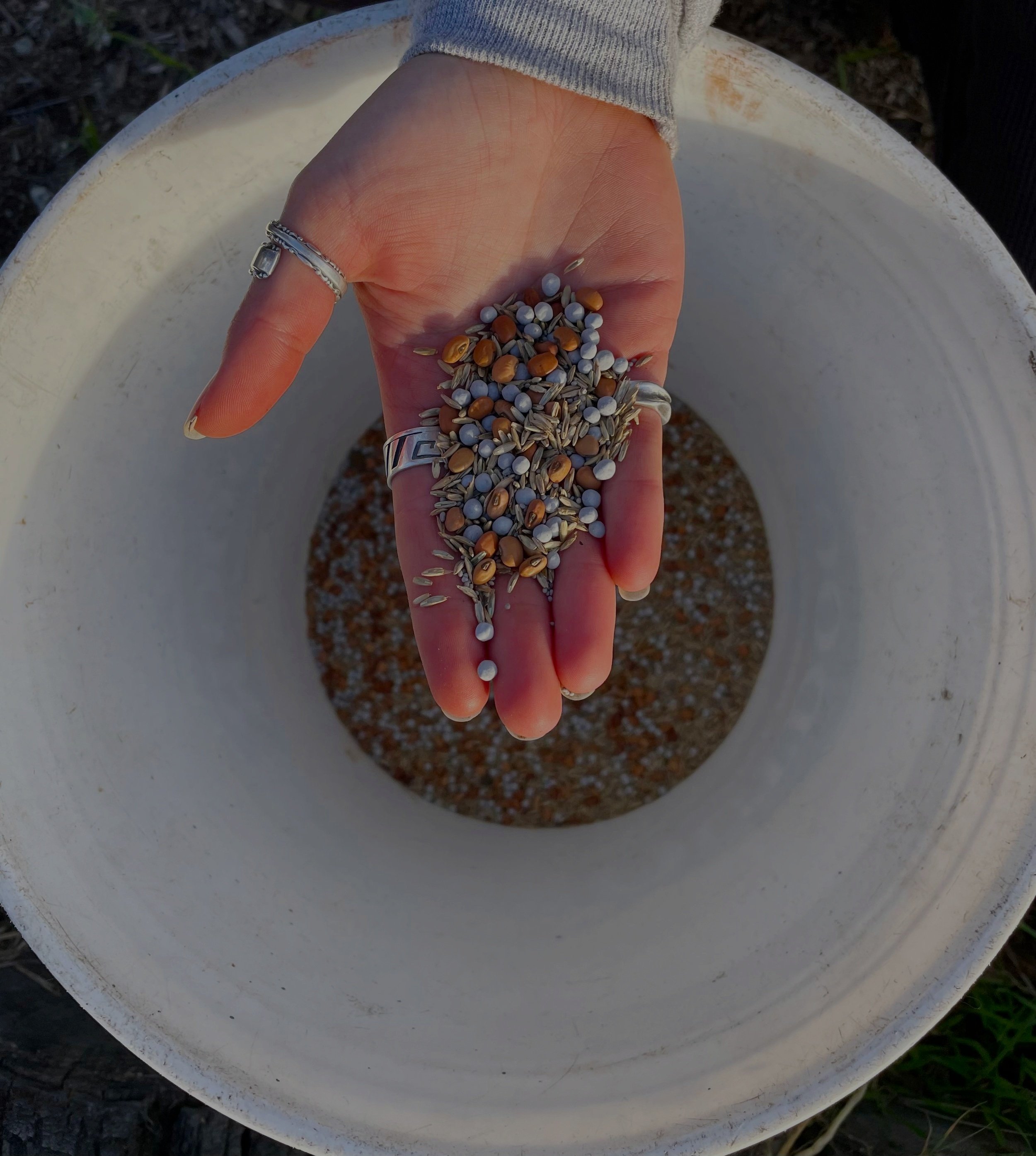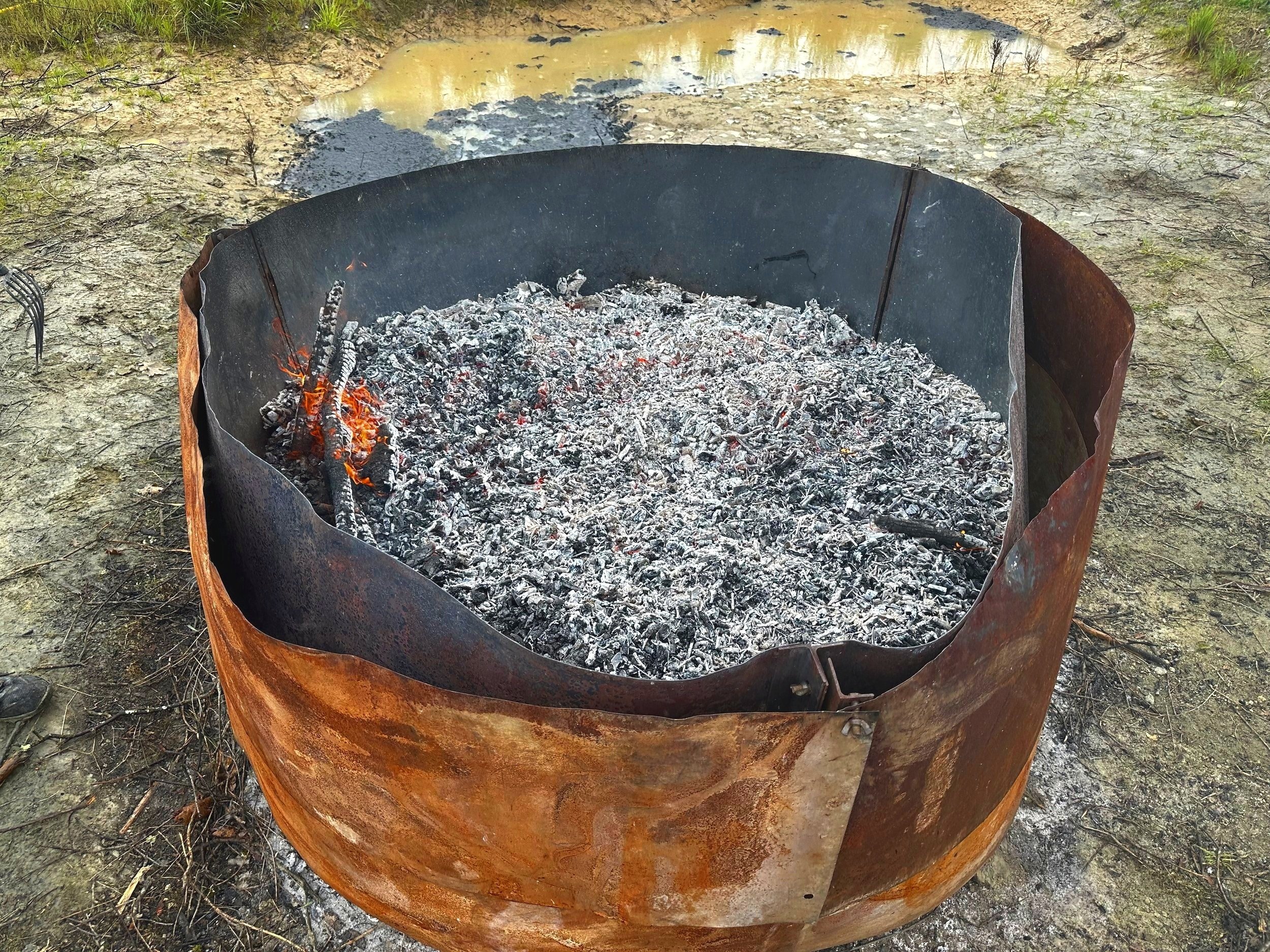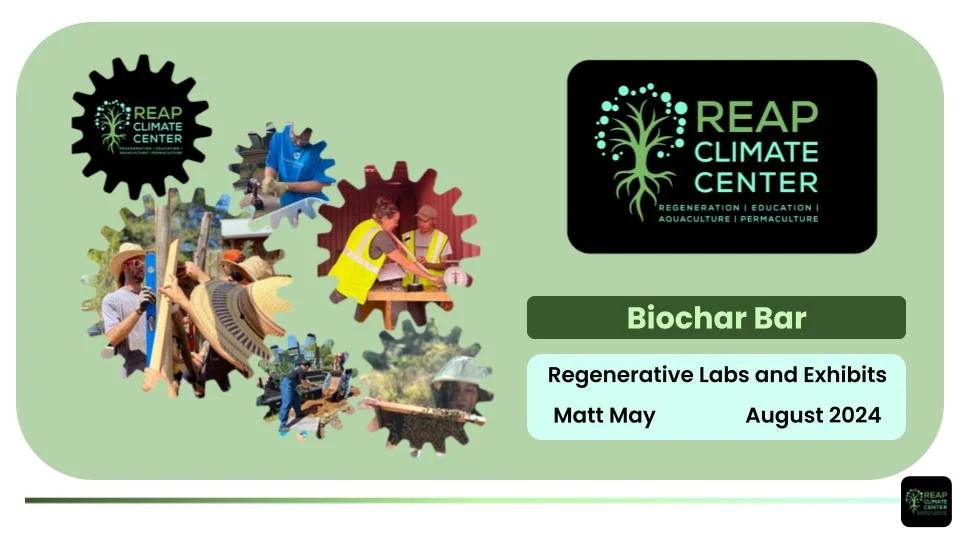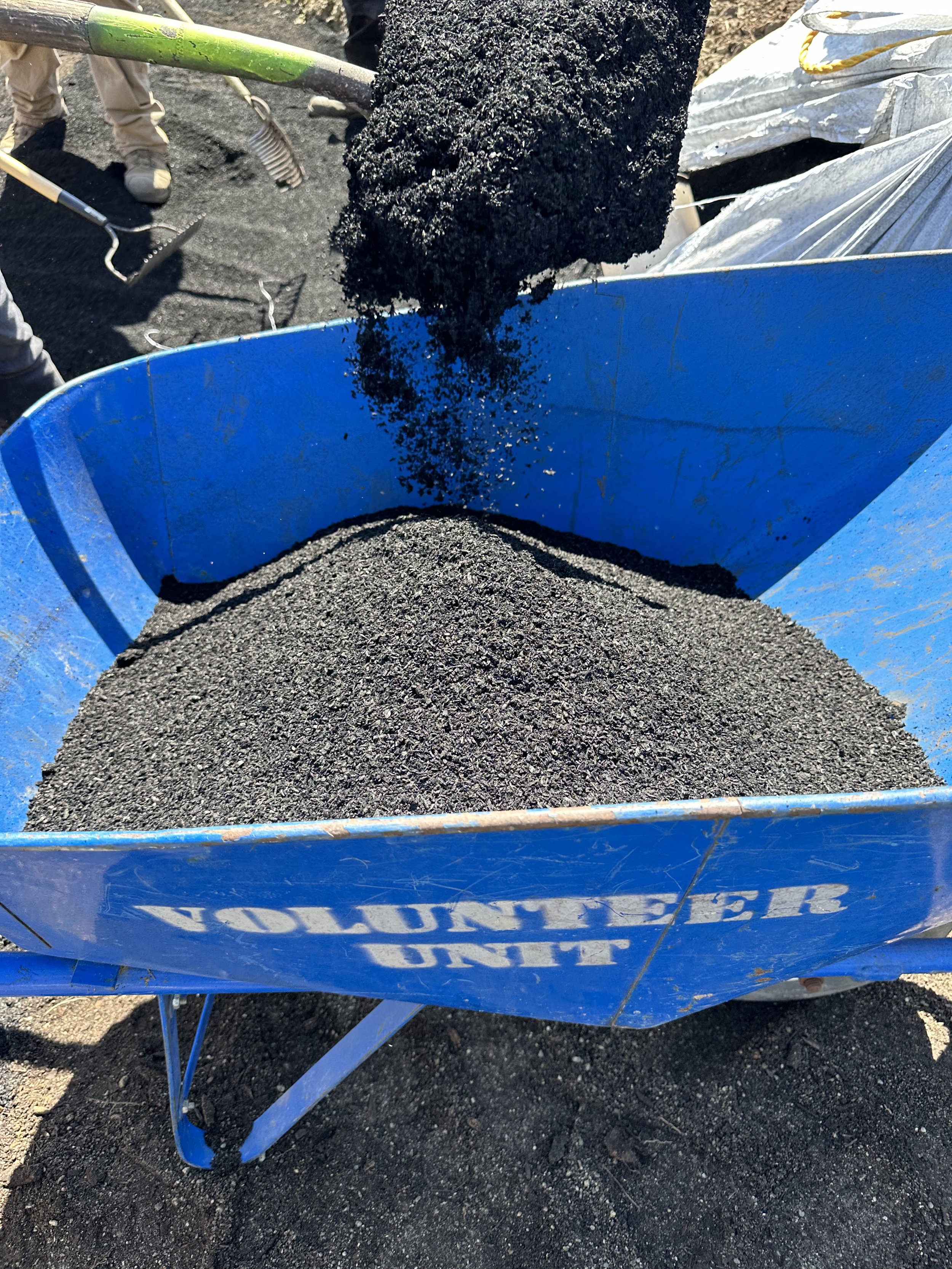Regenerative Labs
Biochar Bar
Biochar Bar promotes biochar as a multi-faceted tool for addressing climate issues. Biochar in practice is used to sequester carbon at scale, improve soil health, remediate polluted soil and water, and reduce risk of wildfire. The program promotes biochar as a regenerative practice in agriculture, urban planning, landscaping, and forest management.
To make this happen we need interested community members like you to pursue biochar solutions with us! Join our community and work on behalf of your community.
There are 2 main ways to stay engaged:
Email List: We’ll keep you posted on what’s going on.
Guild: A little more hands on, a lot like a club!
*There are lots of other things we need to help make this program a success! To learn more click here!
Our Program
The Biochar Bar is a pioneering initiative at the REAP Climate Center, dedicated to showcasing and promoting biochar as a versatile tool for climate resilience. This regenerative lab and exhibit aims to educate and engage the community in understanding how biochar can enhance soil health, sequester carbon, and mitigate climate change. By leveraging biochar's properties, we strive to create sustainable practices that align human systems with nature, fostering ecological experiences and developing climate job pathways.
Biochar In the World
Biochar offers significant ecological benefits, making it a powerful tool for global climate resilience. By converting organic material through pyrolysis, biochar stabilizes carbon, enhances soil aeration, and retains water and nutrients, thus improving soil health and promoting biodiversity. Its application extends to forest management, reducing wildfire risks by converting excess biomass into stable carbon. Additionally, biochar aids in environmental remediation, capturing pollutants and enhancing water quality. Its versatility makes it suitable for green infrastructure projects, from rain gardens to green roofs, contributing to urban sustainability and resilience.
Career Pathways
The Biochar Bar provides a pathway for individuals to develop careers in various fields, leveraging biochar's multifaceted applications. Farmers and agriculturalists can use biochar to improve soil health and increase crop yields. Environmental scientists can explore its impacts on ecosystem balance and biodiversity restoration. Urban planners and builders can integrate biochar into green infrastructure projects to sequester carbon and filter pollutants. Policy and carbon specialists can advocate for biochar within regulatory frameworks, supporting its role in large-scale carbon dioxide removal. The Biochar Bar invites experts, practitioners, and enthusiasts to collaborate on innovative applications, driving forward the biochar industry's growth and impact.
Current Status
To get our programs up and running there are a few things that need to be established! Below are some of the key elements and where we stand in terms of getting things up and running.
It’s impassioned community members, volunteers, and funders who help us push the dial and get closer to our goals!
Program Vision
Industry Sector Analysis
Employers, Trade Organizations, and Unions
Curriculum and Class Resources
On Campus Resources and Facilities
Job Placement Resources
Funding
Status Updates Coming Soon!
Join Our Guild!
Want to get involved more deeply with REAP’s biochar bar? Want to meet other people passionate about biochar, community, and healing the land? Join our biochar bar guild! It’s like a club hosted by REAP for passionate people to do cool stuff!
For more information about what guilds are to REAP click here!

Other ways to get involved
Looking for a way to start on your biochar journey? We are seeking volunteers to help expand biochar education, research, and implementation at REAP! Join our Guild to find out more.
We are always seeking one-time gifts, DAFs & grants, and in-kind donations to help our programs! Visit our donations page for more information.
For more information and local initiatives around biochar check out our Biochar Bar Resource Page!








